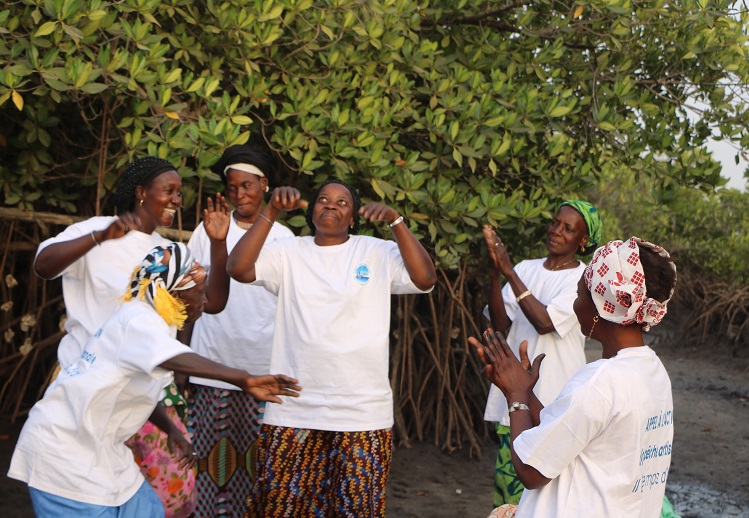Toubacouta – On Tuesday February 21st, 2023, a delegation of the African Confederation of Professional Organizations of Artisanal Fisheries (CAOPA) visited a women’s economic interest group (EIG) in the municipality of Toubacouta (Saloum Islands).
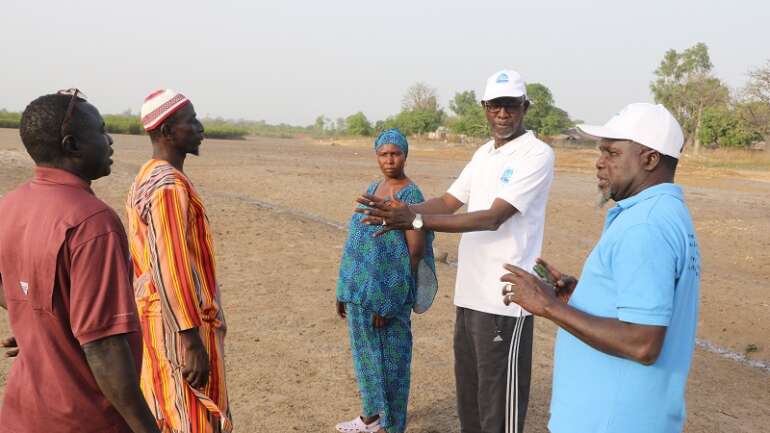
Gaoussou Gueye & Mamadou Faye échangent avec des membres du GIE
The delegation, led by President Gaoussou Gueye and Mamadou Faye, technical support of CAOPA, in the company of the coordinator of the Local Council of Artisanal Fishing (CLPA) of Toubacouta, Arfan Barro, came to learn about the working conditions of the EIG, called YONNE DIOFFOR. This, to see to what extent it can support to improve their living and working conditions, while developing their economic growth.
Located in the commune of Toubacouta, district of Foundione, region of Fatick, in the village of Nema Ba, the delegation was welcomed by the women of the EIG in a festive atmosphere.
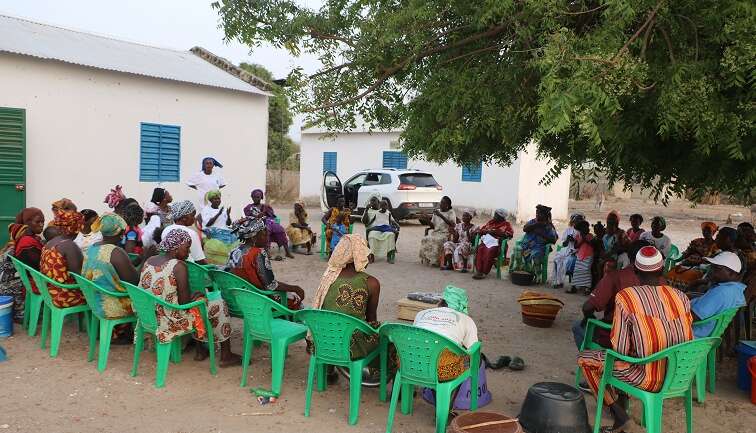
The exchanges lasted one hour between CAOPA’s delegation and members of YONNE DIOFFOR.
After welcoming the mission, the secretary general of the EIG, Mrs. Gnima DIOUF, developed the different activities carried out by her Yonne Dioffor. According to her, to cover the needs of their respective families, they farm oysters (Yeet =volute; Pañ=arch;
Yoxoos = mangrove oyster; Toufa =murex [in Wolof], the local language, Editor’s note).
Challenges
The spokeswoman for the EIG points out that they work in very precarious conditions, not complying with safety and hygiene standards.
“We work under the sun, in open air and dust. In terms of materials used to make the garlands, everything is expensive. For example, we use round wood for the garland lines, which have a lifespan of one year. A single piece costs 1750 FCFA. And every year we have to renew it. It is expensive, because we use a lot of wood and it is a source of deforestation of our mangrove,” she explains.
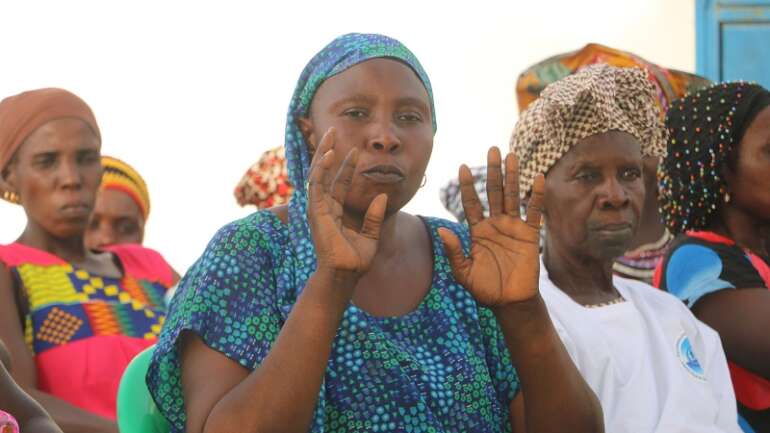
As for the drying and packaging area to have quality and competitive seafood products on the market, Dame Gnima Diouf is emphatic: “We don’t have a drying key. [So our products cannot be competitive with those of Gnodiorc,” she laments.
To change this, she pleaded for an improved site that meets quality, hygiene and safety standards.
Listening to the grievances, President Gueye reassured the EIG that CAOPA will fight with its partners to help address the concerns of the EIG of Yonne Dioffor women, numbering 60.
Before taking leave of the EIG in Nema Bah, the delegation was invited to visit the mangrove with a dozen women of the EIG where they farm oysters.
The observation is impressive!
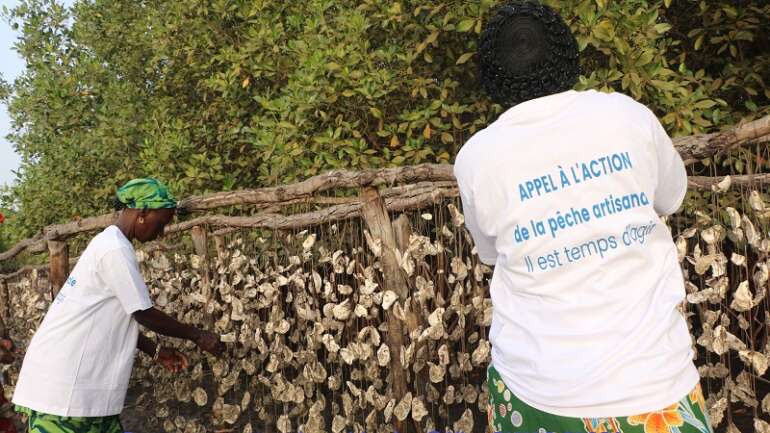
In the middle of the water, in the inlets, the EIG farms oysters. And at high tide, the risks are enormous. Women do not have adequate equipment of any kind; shoes, gloves, nets, means of transport, etc. But they remain determined, because they have to be able to work in a safe environment. But they remain determined, because it is their LIFE, they live it to the full.
In addition, to keep benefiting from the gift of nature, the EIG, supported by some men, has reforested several hectares. It intends to perpetuate this practice for the happiness of present and future generations. Beautiful INITIATIVES to be ACCOMPANIED!
It should be noted that this same EIG is involved in market gardening. It explains 11 hectares of land where chilli, onions, aubergines, okra, cauliflower, etc. are grown.
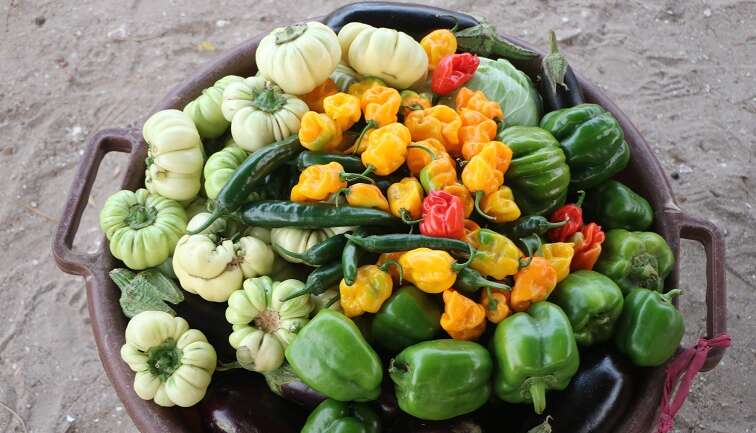
In 2021, the EIG received support from the World Bank for the building of an 800-metre wire fence, a 63-metre borehole equipped with a 40m3/H solar pump and a sprinkler irrigation system.
By Aliou DIALLO
From Toubacouta


